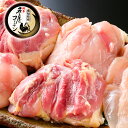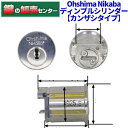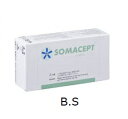Manik
楽天市場検索
レディースファッション (8) (Manik)
メンズファッション (7) (Manik)
インナー・下着・ナイトウェア (0)
バッグ・小物・ブランド雑貨 (2) (Manik)
靴 (9) (Manik)
腕時計 (2) (Manik)
ジュエリー・アクセサリー (34) (Manik)
キッズ・ベビー・マタニティ (4) (Manik)
おもちゃ (1) (Manik)
スポーツ・アウトドア (10) (Manik)
家電 (1) (Manik)
TV・オーディオ・カメラ (20) (Manik)
パソコン・周辺機器 (1) (Manik)
スマートフォン・タブレット (0)
光回線・モバイル通信 (0)
食品 (5) (Manik)
スイーツ・お菓子 (1) (Manik)
水・ソフトドリンク (0)
ビール・洋酒 (0)
日本酒・焼酎 (1) (Manik)
インテリア・寝具・収納 (1) (Manik)
日用品雑貨・文房具・手芸 (38) (Manik)
キッチン用品・食器・調理器具 (5) (Manik)
本・雑誌・コミック (385) (Manik)
CD・DVD (47) (Manik)
テレビゲーム (0)
ホビー (39) (Manik)
楽器・音響機器 (42) (Manik)
車・バイク (0)
車用品・バイク用品 (64) (Manik)
美容・コスメ・香水 (4) (Manik)
ダイエット・健康 (3) (Manik)
医薬品・コンタクト・介護 (11) (Manik)
ペット・ペットグッズ (13) (Manik)
花・ガーデン・DIY (8) (Manik)
サービス・リフォーム (0)
住宅・不動産 (0)
カタログギフト・チケット (0)
百貨店・総合通販・ギフト (0)
レディースファッション (8) (Manik)
メンズファッション (7) (Manik)
インナー・下着・ナイトウェア (0)
バッグ・小物・ブランド雑貨 (2) (Manik)
靴 (9) (Manik)
腕時計 (2) (Manik)
ジュエリー・アクセサリー (34) (Manik)
キッズ・ベビー・マタニティ (4) (Manik)
おもちゃ (1) (Manik)
スポーツ・アウトドア (10) (Manik)
家電 (1) (Manik)
TV・オーディオ・カメラ (20) (Manik)
パソコン・周辺機器 (1) (Manik)
スマートフォン・タブレット (0)
光回線・モバイル通信 (0)
食品 (5) (Manik)
スイーツ・お菓子 (1) (Manik)
水・ソフトドリンク (0)
ビール・洋酒 (0)
日本酒・焼酎 (1) (Manik)
インテリア・寝具・収納 (1) (Manik)
日用品雑貨・文房具・手芸 (38) (Manik)
キッチン用品・食器・調理器具 (5) (Manik)
本・雑誌・コミック (385) (Manik)
CD・DVD (47) (Manik)
テレビゲーム (0)
ホビー (39) (Manik)
楽器・音響機器 (42) (Manik)
車・バイク (0)
車用品・バイク用品 (64) (Manik)
美容・コスメ・香水 (4) (Manik)
ダイエット・健康 (3) (Manik)
医薬品・コンタクト・介護 (11) (Manik)
ペット・ペットグッズ (13) (Manik)
花・ガーデン・DIY (8) (Manik)
サービス・リフォーム (0)
住宅・不動産 (0)
カタログギフト・チケット (0)
百貨店・総合通販・ギフト (0)
766件中 181件 - 210件
2 3 4 5 6 7 8 9 10 11 12
| 商品 | 説明 | 価格 |
|---|---|---|
 English Sentence Exercises (Part 3): Fill In the Gaps【電子書籍】[ Manik Joshi ] 楽天Kobo電子書籍ストア | <p>“Fill in the gaps” worksheets for use in school or at home. Enter the correct word or phrase in a sentence. Make meaningful sentences by filling in the gaps with an appropriate word or phrase. English grammar exercises with answers on filling the gaps with suitable words or phrases.</p> <p>Sample This:</p> <p>Make meaningful sentences by filling in the gaps with the most appropriate word or phrase:</p> <ol> <li> <p>Doctors took ……………..his vital parameters which came out to be normal.<br /> (a). down<br /> (b). along<br /> (c). after<br /> (d). upon<br /> (e). into</p> </li> <li> <p>Access …………….. the internet is essential for contacting friends and family.<br /> (a). with<br /> (b). for<br /> (c). to<br /> (d). in<br /> (e). at</p> </li> <li> <p>Whatever you start …………….. ensure its completion.<br /> (a). at<br /> (b). on<br /> (c). for<br /> (d). to<br /> (e). with</p> </li> <li> <p>He has been missing ……………..…, four days now.<br /> (a). since<br /> (b). from<br /> (c). at<br /> (d). for<br /> (e). upon</p> </li> <li> <p>She is eager to gather information ……………..various subjects.<br /> (a). on<br /> (b). into<br /> (c). in<br /> (d). upon<br /> (e). toward</p> </li> <li> <p>I had a great time working ……………..him.<br /> (a). onto<br /> (b). into<br /> (c). with<br /> (d). upon<br /> (e). over</p> </li> <li> <p>We change and evolve as we go ……………..in life.<br /> (a). beneath<br /> (b). along<br /> (c). underneath<br /> (d). towards<br /> (e). below</p> </li> <li> <p>I found myself being dragged …………….. controversy.<br /> (a). throughout<br /> (b). through<br /> (c). within<br /> (d). into<br /> (e). inside</p> </li> <li> <p>He came home to be with his family …………….. the occasion of New Year.<br /> (a). for<br /> (b). in<br /> (c). to<br /> (d). off<br /> (e). on</p> </li> <li> <p>Nature brings …………….. positive behavioral change in human beings.<br /> (a). upon<br /> (b). about<br /> (c). down<br /> (d). over<br /> (e). upon</p> </li> </ol> <p>ANSWERS TO THE EXERCISE 01</p> <ol> <li>(a). down | 02. (c). to | 03. (e). with | 04. (d). for | 05. (a). on | 06. (c). with | 07. (b). along | 08. (d). into | 09. (e). on | 10. (b). about</li> </ol>画面が切り替わりますので、しばらくお待ち下さい。 ※ご購入は、楽天kobo商品ページからお願いします。※切り替わらない場合は、こちら をクリックして下さい。 ※このページからは注文できません。 | 109円 |
 How to Use the Word “Have” In English: A Comprehensive Guide to the Word “Have” Words In Common Usage, #4【電子書籍】[ Manik Joshi ] 楽天Kobo電子書籍ストア | <p>This Book Covers The Following Topics:</p> <ol> <li>English Verb -- 'Have'</li> <li>Meanings of the Main Verb 'Have'</li> <li>Idioms With the Word 'Have'</li> <li>Phrasal Verbs With the Word 'Have'</li> <li>Proverbs/Sayings With the Word 'Have'</li> <li>Useful Expressions With the Word 'Have'</li> <li>English Word: 'Have' -- Useful Notes</li> <li>Conjugation of the Verb 'Have'</li> </ol> <p>Sample This:</p> <p>Have is an irregular verb. Its three forms are as follows:</p> <p>First Form (Base Form) ? HAVE/HAS<br /> Second Form (Past Form) -- HAD<br /> Third Form (Past Participle) -- HAD</p> <p>Present Perfect of 'Have' ? Had<br /> Past Perfect of 'Have' -- Had</p> <p>-ING Form of 'Come' -- Making<br /> Infinitive of 'Come' -- To Have</p> <p>MOST COMMON Meanings OF "HAVE" AS A MAIN VERB ARE AS FOLLOWS:<br /> (Note: In some senses, you can also use "have got". Especially in British English, using "have got" is quite popular.)</p> <p>Meaning 01:<br /> (have sth) (or have got sth) (not used in the continuous tenses) to hold, own or possess sth</p> <p>Example Sentences:<br /> He has an old two-wheeler.<br /> She does not have a college degree.<br /> They do not have an ATM card.</p> <p>Meaning 02:<br /> (have sth) to experience sth</p> <p>Example Sentence:<br /> What to do when you have a bad day at work.<br /> She had difficulty falling asleep and would wake up several times in the night.<br /> My company has had a rapid economic recovery,<br /> He has had no adverse impact of the medicines.<br /> Our organization has had very healthy growth during the last year<br /> She was helpful to her friend who had a traumatic event.<br /> Many children have had neglect and abuse.<br /> He has had a truly remarkable year.<br /> Some sectors have had major financial challenges in recent years.<br /> The hill road had larger slips.</p> <p>Meaning 03:<br /> (have sth) (or have got sth) (not used in the continuous tenses) to have a thought or feeling in your mind<br /> She has the notion that she can fulfill her dreams.<br /> They have always had the belief that they could beat the big teams.<br /> I have got an idea for the event.<br /> She has got an idea for how it should work.</p> <p>Meaning 04:<br /> (have sth) (or have got sth) (not used in the continuous tenses) to show a particular feature or quality</p> <p>Example Sentences:<br /> Most of the things we eat have flavor in them.<br /> He has a lot of confidence.<br /> He had the audacity to reject my suggestion for a superficial reason.</p> <p>Meaning 05:<br /> (have sth) to eat, drink or smoke sth</p> <p>Example Sentences:<br /> I had a delicious meal at his home.<br /> He had a cigarette during her stroll',<br /> We all had breakfast together at 8 am.<br /> We all had lunch and took a picture.<br /> He had dinner with his family and then went to the office.</p>画面が切り替わりますので、しばらくお待ち下さい。 ※ご購入は、楽天kobo商品ページからお願いします。※切り替わらない場合は、こちら をクリックして下さい。 ※このページからは注文できません。 | 450円 |
 Dictionary of Humorous Words: Vocabulary Building English Word Power, #9【電子書籍】[ Manik Joshi ] 楽天Kobo電子書籍ストア | <p>What are "Humorous Words"?</p> <p>What is Humor? [HUMOUR [(British English) | HUMOR (AMERICAN ENGLISH)]<br /> Humor is something that is funny, comical, or amusing</p> <p>Definition of 'Humorous Words'<br /> Words that are intended to be amusing, entertaining, funny, or comical are called humorous words.</p> <p>Examples:<br /> beak [noun] ? large or pointed nose of somebody<br /> ego-surfing [noun] ? the activity of searching your name on different websites on the Internet<br /> iron rations [noun] ? a small amount of food carried for an emergency by soldiers, etc. while climbing or walking<br /> unhand [verb] ? to release somebody that you are holding</p> <p>Besides "Humorous Words", there are some Idioms and Phrasal Verbs which are used to express humor (amusement or funniness)<br /> Example- (idiom): a big cheese ? a very important and influential person in a big organization<br /> Example- (phrasal verb): gird (up) your loins ? to get ready to do a difficult task or activity</p> <p>NOTE: Many 'Humorous Words' are also used in 'formal', 'informal' or other sense<br /> Example:<br /> BEAST<br /> beast [noun] [Humorous] ? a person or thing who is unpleasant<br /> beast [noun] [Informal] ? a thing of a particular type<br /> beast [noun] [Formal] ? a large and dangerous animal</p> <p>A detailed list of 'humorous words', parts of speech they belong to, and their meanings are as follows:</p> <p>Humorous Words -- A</p> <p>abaya [noun]<br /> a full-length, sleeveless outer garment worn by Arabs</p> <p>abdicate [verb]<br /> to give up all hope of ever having a flat stomach</p> <p>abibliophobia [noun]<br /> the fear of running out of reading material</p> <p>abomasums [noun]<br /> the fourth stomach of a ruminant, such as a cow or a sheep</p> <p>absquatulate [verb]<br /> to abruptly leave or abscond with something</p> <p>academe [noun]<br /> the world of studying, teaching, etc. at academic institutions e.g. universities and colleges</p> <p>accoutrements (accouterments) [noun]<br /> pieces of equipment that are required for an activity; accessories</p> <p>acerbate [verb]<br /> to embitter somebody</p> <p>acidulous [adjective]<br /> rather sour or sharp in speech, manner, etc.</p> <p>adjourn to… [phrasal verb]<br /> to go to another place to calm down</p> <p>of advanced years | sb's advanced age [idiom]<br /> used to show that somebody is 'very old' or aged</p> <p>agelast [noun]<br /> one who never laughs</p> <p>aglet [noun]<br /> the plastic tip on the end of a shoelace</p> <p>alack [exclamation]<br /> used to express sadness or regret</p> <p>allegator [noun]<br /> someone who alleges</p> <p>allergic [adjective]<br /> strong dislike towards somebody</p> <p>amatory [adjective]<br /> relating to physical activity or desire</p> <p>amphibology [noun]<br /> grammatically ambiguous phrase or sentence (e.g.: he talked to his son and his daughter)</p> <p>amphisbaena [noun]<br /> a mythical serpent with a head at each end</p> <p>anencephalous [adjective]<br /> lacking a brain</p> <p>anfractuous [adjective]<br /> circuitous or winding</p> <p>anguilliform [adjective]<br /> resembling an eel</p> <p>anserine [adjective]<br /> goose-like | silly or foolish</p> <p>antediluvian [adjective]<br /> traditional or out-of-date</p> <p>anthropophagy [noun]<br /> cannibalism</p> <p>apolaustic [adjective]<br /> devoted to the seeking of enjoyment</p> <p>apple-knocker [noun]<br /> an ignorant or unsophisticated person</p> <p>appurtenance [noun]<br /> a smaller part of something larger, superior or more significant</p> <p>archipelago [noun]<br /> a chain of islands</p> <p>argle-bargle [noun]<br /> meaningless and abundant talk or writing</p>画面が切り替わりますので、しばらくお待ち下さい。 ※ご購入は、楽天kobo商品ページからお願いします。※切り替わらない場合は、こちら をクリックして下さい。 ※このページからは注文できません。 | 150円 |
 Dictionary of Literary Words: Vocabulary Building English Word Power, #7【電子書籍】[ Manik Joshi ] 楽天Kobo電子書籍ストア | <p>WHAT ARE "LITERARY WORDS"?</p> <p>'Literary words' are associated with literature.<br /> 'Literary words' are typical of a work of literature and imaginative writing.<br /> 'Literary words' are used with a particular meaning, in narrative, drama, poetry and other writing in a literary manner.</p> <p>This book has been divided into three sections:<br /> Section 01: Common Literary Words<br /> Section 02: Figurative Use of the Words<br /> Section 03: Glossary of Literary Terms</p> <p>IMPORTANT NOTES</p> <p>NOTE -- A:<br /> ELEVATED WORDS<br /> Use of an 'Elevated' Word in Place of a 'Simple' Word<br /> 'Elevated language' is widely used in literature.<br /> Elevated Word -- a word that is used to show a high intellectual level<br /> Simple Word -- a word that is used to keep the conversation simple in daily life</p> <p>Example 1:<br /> 'Behold' [elevated word] | 'See' [simple word]<br /> Meaning of 'behold' and 'see':<br /> to become aware of something by using your eyes</p> <p>Example 2:<br /> 'Blithe' [elevated word] | 'Happy' [simple word]<br /> Meaning of 'blithe' and 'happy':<br /> showing or feeling pleasure</p> <p>******</p> <p>NOTE -- B:<br /> FIGURATIVE USE OF THE WORDS<br /> Many words and phrases are used in a different (literary) way from their usual (literal) meanings to produce a special effect. [I have put these words together in Section-2 (figurative use of the words) of this book.]</p> <p>Example-1:<br /> ache: In a general sense -- to feel a continuous pain<br /> His leg ached because of injury.<br /> ache: In a literary sense -- to be very sad<br /> His false accusations made our hearts ache. [= made us sad]</p> <p>Example-2:<br /> Flash: In a general sense -- to shine brightly for a few moments<br /> The camera flashed once.<br /> Flash: In a literary sense -- to suddenly show a strong emotion<br /> Their eyes flashed with horror.</p> <p>******</p> <p>NOTE -- C:<br /> 'LITERARY TERMS'<br /> There are many words that are used to describe a particular form of writing in a literary work or used in the analysis, discussion, classification, and criticism of a literary work. [I have defined these terms in Section-3 (glossary of literary terms) of this book.]</p> <p>Examples:<br /> catharsis -- the process of releasing strong feelings through artistic activities<br /> diction -- the choice and use of words to create a specific effect in a literary work<br /> epithet -- a word or expression used to attribute a special quality to somebody/something<br /> genre -- a particular category, style or type to which a literary wok belongs<br /> holograph -- a handwritten piece of writing by its author<br /> idyll -- a poem that describes a peaceful and happy scene<br /> juvenilia -- a literary work produced by an artist, in his/her youth<br /> melodrama -- a literary work that is full of exciting and exaggerated events or emotions<br /> opera -- a dramatic work where a majority of the words are sung to music<br /> panegyric -- a speech or written composition that praises somebody/something<br /> prosody -- the patterns of rhythms and sounds in poetry<br /> quatrain -- a verse of a poem that has four lines<br /> refrain -- a line or number of lines of a song or poem that is repeated after each verse<br /> scene -- one of the small sections within an act (a major division) of a play<br /> semantic -- relating to the meaning of words and sentences<br /> trilogy -- a set of three books, plays, movies, etc. on the same characters or subject</p> <p>figure of speech -- an expression in which a word or phrase represents one thing in terms of something dissimilar (non-literal) to create a particular effect in somebody's mind, or in which an emphasis is produced by patterns of sound. [Some common figures of speech are as follows -- alliteration, anaphora, antistrophe. apostrophe, assonance, consonance, hyperbole, irony, litotes, metaphor, metonymy, periphrasis, personification, simile, synecdoche]</p>画面が切り替わりますので、しばらくお待ち下さい。 ※ご購入は、楽天kobo商品ページからお願いします。※切り替わらない場合は、こちら をクリックして下さい。 ※このページからは注文できません。 | 450円 |
 How to Use the Word “Break” In English: A Comprehensive Guide to the Word “Break” Words In Common Usage, #1【電子書籍】[ Manik Joshi ] 楽天Kobo電子書籍ストア | <p>This Book Covers The Following Topics:</p> <ol> <li>English Verb -- 'Break'</li> <li>Meanings of the Main Verb 'Break'</li> <li>Idioms With the Word 'Break'</li> <li>Phrasal Verbs With the Word 'Break'</li> <li>Proverbs/Sayings With the Word 'Break'</li> <li>Useful Expressions With the Word 'Break'</li> <li>English Word: 'Break' -- Useful Notes<br /> (A). 'Imperative Sentences' With the Verb 'Break'<br /> (B). 'Break' As A Noun<br /> (C). 'Break' As An Adjective<br /> (D). Other Useful Words With 'Break'</li> <li>Conjugation of the Verb 'Break'</li> </ol> <p>Sample This:</p> <p>Break is an irregular verb. Its three forms are as follows:</p> <p>First Form (Base Form) -- BREAK<br /> Second Form (Past Form) -- BROKE<br /> Third Form (Past Participle) -- BROKEN</p> <p>Present Perfect of 'Break' ? Have/Has Broken<br /> Past Perfect of 'Break' -- Had Broken</p> <p>-ING Form of 'Break' -- Breaking<br /> Infinitive of 'Break' -- To Break</p> <p>MOST COMMON Meanings OF 'BREAK' AS THE MAIN VERB ARE AS FOLLOWS:</p> <p>Meaning 1:<br /> to be damaged and divided or separated into two or more parts due to force of some type; to damage something in this way<br /> Example Sentences:<br /> The helicopter blade broke in the storm.<br /> (break (in/into something))<br /> A passenger plane skidded off the runway and broke into pieces.<br /> (break something)<br /> A museum visitor intentionally broke a vase in the exhibition.<br /> Breaking atoms can release energy.<br /> (break something in/into something)<br /> He broke the table into many pieces and wood splinters flew up into the air.</p> <p>Meaning 2:<br /> (break something) to do something that is considered illegal, unethical, etc.; to fail to keep promises, words, etc.<br /> Example Sentences:<br /> When minors break the law, they usually appear in juvenile court.</p> <p>Meaning 3:<br /> (of a body part) to fracture or crack a bone in the body.<br /> Example Sentences:<br /> The actress broke her nose on the set of the film.</p> <p>Meaning 4:<br /> (break something) to make something come to an end forcefully<br /> Example Sentences:<br /> Tear gas was hurled into the buildings to break the strike.</p> <p>Meaning 5:<br /> to become weak or be destroyed; to destroy something or make somebody/something weaker or unable to bear something<br /> Example Sentences:<br /> (break somebody/something)<br /> A loss would have definitely broken his morale.</p> <p>Meaning 6:<br /> (break something) to end a relationship, association, connection, etc. with somebody/something<br /> Example Sentences:<br /> How to break the chain of transmission!</p> <p>Meaning 7:<br /> (break somebody) to make somebody feel extremely sad, lonely, etc. in a way that prevents them from leading a normal life<br /> Example Sentences:<br /> His deteriorated health broke him from the inside.</p>画面が切り替わりますので、しばらくお待ち下さい。 ※ご購入は、楽天kobo商品ページからお願いします。※切り替わらない場合は、こちら をクリックして下さい。 ※このページからは注文できません。 | 150円 |
 How to Use the Word “Come” In English: A Comprehensive Guide to the Word “Come” Words In Common Usage, #2【電子書籍】[ Manik Joshi ] 楽天Kobo電子書籍ストア | <p>This Book Covers The Following Topics:</p> <ol> <li>English Verb -- 'Come'</li> <li>Meanings of the Main Verb 'Come'</li> <li>Idioms With the Word 'Come'</li> <li>Phrasal Verbs With the Word 'Come'</li> <li>Proverbs/Sayings With the Word 'Come'</li> <li>Useful Expressions With the Word 'Come'</li> <li>English Word: 'Come' -- Useful Notes</li> <li>Conjugation of the Verb 'Come'</li> </ol> <p>Sample This:</p> <p>Come is an irregular verb. Its three forms are as follows:</p> <p>First Form (Base Form) -- COME<br /> Second Form (Past Form) -- CAME<br /> Third Form (Past Participle) -- COME</p> <p>Present Perfect of 'Come' ? Have/Has Come<br /> Past Perfect of 'Come' -- Had Come</p> <p>-ING Form of 'Come' -- Coming<br /> Infinitive of 'Come' -- To Come</p> <p>MOST COMMON Meanings OF "COME" AS A MAIN VERB ARE AS FOLLOWS:</p> <p>Meaning 01:<br /> to arrive at, get to or reach a place; to move towards a person or place</p> <p>Example Sentences:<br /> My parcel came today, but sadly, an item that I had ordered was missing.<br /> When the opportunity came at last, I made the most of it.<br /> Your ordered items are coming in a little while.<br /> Help came late!<br /> He came into the dressing room.</p> <p>(come (to..))<br /> Today is a holiday, but he came to the office in the afternoon for some work.<br /> They went along the road and came to a stream<br /> What time did he come to your farmhouse?<br /> The time has come to say goodbye ? for a while.</p> <p>(come to do sth)<br /> They are coming to meet you personally today.<br /> He had come to solve your problems.<br /> She came to work despite being told to stay home.</p> <p>Come near!<br /> His daughter came home in the evening,<br /> "It is quite a storm coming in.</p> <p>Meaning 02:<br /> to happen</p> <p>Example Sentences:<br /> Did this contract come after the initial announcement of the record?<br /> The rains came late but were abundant to end the months-long drought<br /> (come as sth)<br /> Testing positive for dengue fever came as a rude shock to him.<br /> The increased payments came as a relief.<br /> The results of the company did not come as expected.<br /> It came as no surprise to us that he was named "Student of the Year".</p> <p>Meaning 03:<br /> to arrive somewhere with a purpose to do sth or get sth</p> <p>Example Sentences:<br /> (come for sth) She came for a vacation with her two sons.<br /> (come about sth) She came about his dinner.<br /> (come to do sth) His wife and children came to meet him.<br /> (come doing sth) He came complaining of tooth pain in the upper left maxilla.</p> <p>Meaning 04:<br /> (come to/into sth) used to show that sth has reached ain particular state</p> <p>Example Sentences:<br /> His life journey suddenly came to an end.<br /> The motorcycle came to a stop.<br /> Hitler came to power in 1933<br /> She analyzed the information and came to a decision.<br /> He came to a conclusion without hearing me completely.</p> <p>Meaning 05:<br /> to move or travel by yourself or with sb else to a particular place with a view to joining an event</p> <p>Example Sentences:<br /> He had come only for a few minutes to join the function.<br /> Thanks for coming, everyone!<br /> She came to the party with no gift.<br /> (come to sth with sb) She came to the get-together with his family.<br /> (come doing sth) He came skating with his friends.</p>画面が切り替わりますので、しばらくお待ち下さい。 ※ご購入は、楽天kobo商品ページからお願いします。※切り替わらない場合は、こちら をクリックして下さい。 ※このページからは注文できません。 | 150円 |
 How to Use the Word “Run” In English: A Comprehensive Guide to the Word “Run” Words In Common Usage, #7【電子書籍】[ Manik Joshi ] 楽天Kobo電子書籍ストア | <p>This Book Covers The Following Topics:</p> <ol> <li>English Verb -- 'Run'</li> <li>Meanings of the Main Verb 'Run'</li> <li>Idioms With the Word 'Run'</li> <li>Phrasal Verbs With the Word 'Run'</li> <li>Proverbs/Sayings With the Word 'Run'</li> <li>Useful Expressions With the Word 'Run'</li> <li>English Word: 'Run' -- Useful Notes</li> <li>Conjugation of the Verb 'Run'</li> </ol> <p>Sample This:</p> <p>Run is an irregular verb. Its three forms are as follows:</p> <p>First Form (Base Form) -- RUN<br /> Second Form (Past Form) -- RAN<br /> Third Form (Past Participle) -- RUN</p> <p>Present Perfect of 'Run' ? Have/Has Run<br /> Past Perfect of 'Run' -- Had Run</p> <p>-ING Form of 'Run' ? Running<br /> Infinitive of 'Run' -- To Run</p> <p>MOST COMMON Meanings OF "RUN" AS THE MAIN VERB ARE AS FOLLOWS:</p> <p>Meaning 01:<br /> to move fast with your legs</p> <p>Example Sentences:<br /> Run as fast as you can.<br /> Can cameramen run as fast as the sprinters?<br /> He ran to the shop.<br /> She ran to help him<br /> They ran when the earthquake occurred.</p> <p>Meaning 02:<br /> to travel a particular distance by running</p> <p>Example Sentence:<br /> He was able to run a mile in 5 minutes.</p> <p>Meaning 03:<br /> to manage and be in charge of a business, etc</p> <p>Example Sentences:<br /> What skills are needed to successfully run a hotel?<br /> Can somebody run a business out of an apartment or other rented property?<br /> How many solar panels are needed to run a house?<br /> It takes a team to run a restaurant.<br /> Actually, I am running a play school individually and wish to set up a higher secondary school.<br /> It's hard to run a company professionally, while simultaneously taking care of the family.<br /> It is far more expensive to run a news channel than an entertainment channel.<br /> I just let her run my life basically.<br /> Every owner has the authority to make decisions about how the business is run.</p> <p>Meaning 04:<br /> (ran sth) + (adv./prep.) to move sth in a particular direction</p> <p>Example Sentences:<br /> She ran her fingers through her loosened hair for a while.<br /> I ran my eyes over the page.<br /> He quickly ran her eyes all over his house.<br /> She ran her eyes hurriedly over the clothes rack.<br /> She ran her eyes over every inch of his face.<br /> He quickly ran his eyes through the whole document.<br /> He ran his hand through his bushy beard as he stared at the wall.</p> <p>Meaning 05:<br /> to unstoppably continue for a specified period of time</p> <p>Example Sentences:<br /> (run for sth)<br /> The festival ran for two weeks in June.<br /> His campaign ran for three months and reached hundreds of thousands of viewers across the country.<br /> He started his own business which he ran for five years.<br /> My factory runs for five days followed by two days of closure.</p> <p>(run and run)<br /> The civil war may run and run despite the unity pledge.</p>画面が切り替わりますので、しばらくお待ち下さい。 ※ご購入は、楽天kobo商品ページからお願いします。※切り替わらない場合は、こちら をクリックして下さい。 ※このページからは注文できません。 | 150円 |
 Dictionary of Root Words: Greek and Latin Roots【電子書籍】[ Manik Joshi ] 楽天Kobo電子書籍ストア | <p>What are “Root Words”?</p> <p>A root or root word is a word that is used to form another word. It is also called a base word. A root does not have a prefix (a letter or group of letters added to the beginning of a word) or a suffix (a letter or group of letters added to the end of a word).<br /> The root is the primary lexical unit of a word, and of a word family.</p> <p>For example, pure is a root. By adding prefixes and suffixes, the following words could be made:<br /> impure, purity, pureness</p> <p>Similarly, play and move are root words. By adding prefixes and suffixes, the following words could be made:<br /> plays, played, playing, player<br /> moving, movement, moved, movable, mover, movingly</p> <p>In this book, I have given the most common Greek and Latin roots which are used in English language.</p> <p>Sample This:</p> <p>Root Words -- A</p> <p>AB/ABS<br /> Origin: Latin | Meaning: away, from, off<br /> Examples:<br /> abate -- to subside<br /> abject -- hopeless<br /> abjure -- to renounce<br /> abnormal -- unusual | related words: abnormally, abnormality<br /> abroad -- out of the country<br /> abscess -- swelling<br /> abscond -- to run away | related word: absconder<br /> abseil -- to go down a steep cliff<br /> absence -- nonattendance | related words: absent, absentee, absenteeism, absentia, absently<br /> absolve -- to forgive<br /> absorb -- to soak up | related words: absorbable, absorbance, absorbed, absorbency, absorbent, absorbing, absorption<br /> abstain -- to give up something for moral reason | related words: abstainer, abstention, abstinence<br /> abstemious -- critical<br /> abstinent -- not having something for moral reason<br /> abstract -- not real; theoretical | related words: abstracted, abstractedly, abstraction, abstractly<br /> abstruse -- difficult to understand; obscure<br /> absurd -- ridiculous | related words: absurdist, absurdity, absurdly</p> <p>AGG<br /> Origin: Latin | Meaning: collected<br /> Examples:<br /> agglomerate -- to collect things and form them into a mass or group | related word: agglomeration<br /> aggrandize -- to increase your importance or power | related word: aggrandizement<br /> aggregate -- to put together different items, amounts, etc. into a single total | related words: aggregation, aggregator</p> <p>ALTR/ALTER<br /> Origin: Latin | Meaning: other<br /> Examples:<br /> altruism -- caring about the needs of other people | related word: altruistic<br /> alterable -- that can be changed | related word: unalterable<br /> altercation -- noisy argument<br /> alternate -- to follow one after other | related words: alternately, alternation, alternative</p> <p>Some More Root Words -- A<br /> Root Word [Origin] -- Meaning | Example(s) (Related Words in Bracket)<br /> a [Greek] -- not | atheism, apolitical, atypical<br /> ablat [Latin] -- remove | ablation<br /> ablut [Latin] -- wash | ablutions<br /> abort [Latin] -- born too soon | abortion<br /> abras [Latin] -- rub off | abrasion (abrasive, abrasively, abrasiveness)<br /> abstemi [Latin] -- controlled; moderate | abstemious<br /> abund [Latin] -- overflow | abundance (abundant, abundantly)<br /> ac [Latin] -- to, toward | accept (acceptability, acceptable, acceptably, acceptance, acceptation)<br /> acanth [Greek] -- thorn | acanthus<br /> acceler [Latin] -- hasten | accelerate (acceleration, accelerator)<br /> acet [Latin] -- vinegar | acetate, acetic, acetone<br /> achr [Greek] -- colorless | achromic<br /> acm [Greek] -- summit | acme<br /> aco [Greek] -- relief | aconite<br /> adama [Greek] -- invincible | adamant (adamantly)<br /> ade [Greek] -- enough | adequate (adequacy, adequately)<br /> adip [Latin] -- fat | adipose<br /> adolesc [Latin] -- growing up | adolescent (adolescence)</p> <p>Other Root Words -- A<br /> Root Word [Origin] -- Meaning<br /> aapt [Greek] -- indomitable, unfriendly<br /> abact [Latin] -- driven away<br /> abdit [Latin] -- secret/hidden<br /> ablep [Greek] -- loss of sight<br /> abr [Greek] -- delicate<br /> abscis [Latin] -- cutoff<br /> absit [Latin] -- distant<br /> aca [Greek] -- a point; silence<br /> acar [Greek] -- tiny<br /> accip [Latin] -- allow, snatch<br /> accliv [Latin] -- steep; up-hill<br /> accresc [Latin] -- increase<br /> ace [Greek] -- heal<br /> acer [Latin] -- sharp<br /> acerv [Latin] -- pile<br /> acest [Greek] -- healing; remedy</p>画面が切り替わりますので、しばらくお待ち下さい。 ※ご購入は、楽天kobo商品ページからお願いします。※切り替わらない場合は、こちら をクリックして下さい。 ※このページからは注文できません。 | 380円 |
 2個セット 東洋レヂン ソマレゾン L 100個入 7mm 一般医療機器 鍼 緩和 マイクロコーン 血行 ツボ 灸 ソマニクス SOMANIKS SOMARESON ボーテ&サンテマルシェ | ゴムの弾力性をもつエラストマー樹脂のマイクロコーンから成る微細突起状の医療機器です。 体制 自律神経反射によって脊髄におけるオピオイドの放出を促し、求心性C繊維による侵害情報伝達を抑制することにより痛みの緩和をもたらします。 ソマレゾンのマイクロコーンの高さは、300μm(= 0.3mm) 皮膚を傷つけないため利用しやすく、貼付することによる痛みはほとんど感じられません。その為、安全で取り扱い易い医療機器として設計されています。 創業より培ったプラスチック加工技術で実現可能となった刺さない鍼。 マイクロコーン母体は、製品ディスク(L:直径7mm、S:直径4mm、mini:直径4mm)の中にあり、マイクロコーン177本(L)、53本(S、mini)が集合体として面を形成。 これがやさしい刺激のベースになっていると同時に、痛みとして感じられないほどの繊細な刺激を皮膚神経へと確実に伝え、治療効果をもたらす基となっています。 ソマレゾンは、ゴム状樹脂で柔らかく、プラスチック樹脂のソマセプトに比べて弱めの刺激となります。 ゴム状樹脂製のマイクロコーンに、皮膚へ固定するための絆創膏が付いた医療機器です。わずかな振動や圧迫がマイクロコーンを振動させ、皮膚へ刺激を送り続けます。 商品詳細 商品名 2個セット 東洋レヂン ソマニクス ソマレゾン L 100個入 内容量 100個×2 メーカー 東洋レヂン株式会社 区分 一般医療機器 広告文責 株式会社 サージ | 8,650円 |
 2個セット 東洋レヂン ソマセプト L 100個入 7mm 一般医療機器 鍼 マイクロコーン 血行 ツボ 灸 ソマニクス SOMANIKS SOMACEPT ボーテ&サンテマルシェ | プラスチック製のマイクロコーンで作られた繊細突起状の医療機器です。 皮膚表面への刺激により軸索反射を発生させ、皮膚表面の血流が増加することによって、関節の痛みや筋肉の可動通、凝りなどの緩和・改善を行います。 ソマセプトのマイクロコーンの高さは、わずか150μm(= 0.15mm)。 皮膚を傷つけないため利用しやすく、貼付することによる痛みはほとんど感じられません。安全で取り扱いやすい医療機器として設計されています。 創業より培ったプラスチック加工技術で実現可能となった刺さない鍼。 マイクロコーン母体は、製品ディスク(L:直径7mm、S:直径4mm、mini:直径4mm)の中にあり、マイクロコーン129本(L)、36本(S、mini)が集合体として面を形成。 このマイクロコーン群が皮膚に触れることで、やさしい刺激が生じます。また同時に、痛みとして感じられないほどの繊細な刺激を皮膚神経へと確実に伝え、治療効果をもたらす基となっています。 ソマセプトはプラスチック樹脂であるためやや固く、ゴム状樹脂のソマレゾンに比べて強めの刺激となります。 プラスチック製のマイクロコーンに、皮膚へ固定するための絆創膏が付いており、この適度な密着によって、わずかな振動や圧迫がマイクロコーンを振動させ、皮膚へ刺激を送り続けます。 商品詳細 商品名 2個セット 東洋レヂン ソマニクス ソマセプト L 100個入 内容量 100個×2 メーカー 東洋レヂン株式会社 区分 一般医療機器 広告文責 株式会社 サージ | 8,650円 |
 牧場直送!青森県産 完全無添加 冷凍馬肉 角切り 犬用 ペット用 7kg(250g×28個) 犬のごはん 国産 冷凍ミンチ 生肉 生食 馬刺し 生馬肉 さばきたて ペット用馬肉 ペット用生肉 アレルギー ロゴスペット【おまけなし】 ロゴスペットサイト | ※注文順に一つ一つ、さばきたてをお届けしておりますので、お待ちいただいているところ申し訳ございませんが、お届けまでに時間がかかってしまいます。 ※クール便で発送いたします。 【原材料】馬もも肉 【原産国】日本 【内容量】250g×28個 【成分値】粗たんぱく質20.0%以上、粗脂肪2.5%以上、粗繊維0%以下、粗灰分1.0%以下、水分80%以下、カロリー110kcal 【賞味期限】冷凍保存で約3ヶ月 冷凍庫で保管してください。解凍したものは速やかにお与えください。一度解凍したものを再冷凍しないでください。『これは、ほとんどの人が知らない馬肉のお話です』 一般的にペット用に販売されている馬肉は外国で解体、カット、冷凍されたもの 最短でも さばいてから1ヶ月以上経った物がほとんどです ・他商製品=外国で解体・冷凍 → 長い船旅 → 日本の工場で解凍、成型、再び冷凍 ・当社製品=解体・加工・急速冷凍 → その日の夕方青森よりご自宅へ直送 注文順に一つ一つ、さばきたてをお届けしておりますので、お待ちいただいているところ申し訳ございませんが、お届けまでに時間がかかってしまいます。 『あなたは間違った常識を信じていませんか?』 「肉は熟成させた方が旨くなる」 牛肉や豚肉で言われるこの常識は、馬肉には当てはまりません 「さばきたてが一番旨い!」 これが馬肉を扱う人間の常識なのです! 『犬になぜ馬肉を与えるのか?』 (1)生の馬肉は酵素、ミネラル、タンパク質が豊富で、ドライフード中心の食生活を続けているワンコ達へは一番のお勧め食品です 犬の体にとって一番重要な栄養素は「酵素」です 酵素は50度以上の熱を加えると酵素成分がなくなります ワンちゃんに与える場合は必ず50度以下で調理して下さい (2)ビーフ(牛)の狂牛病・ポーク(豚)の口蹄疫(こうていえき)・チキン(鶏)の鶏インフルエンザ 以上のような家畜伝染病が発生した場合、全て殺処分しなければなりませんが、馬はこのような病気は発生しません (3)馬肉は牛豚鶏に比べ、低脂肪(1/10程度) 低カロリー(1/2程度) ミネラル類は『約2倍』しかも馬肉は消化吸収に優れています。 病中病後、産前産後、スタミナ食として理想の食品と言えます ロゴスで提供する馬肉は、青森の頑固な職人が手間をかけ、長い年月を通じて培ってきたプロの技術でさばいたものです。 馬肉Q&A Q.馬肉は生で食べられるのですか? A.もちろんOKです でも、今のワンちゃんは、生肉に慣れていない子もいて、お腹を壊してしまう子もいます。 最初は半生位まで加熱して、今までの食事に少しずつ混ぜて様子を見て下さい。 当店取り扱いの馬肉は全種類人間用食材と同じようにお取り扱いをしておりますが「馬刺」ではないので、人間は生では食べられません Q.馬肉は高ミネラル、低カロリーとよくいわれますが・・? A.カルシウムは牛豚の3〜4倍、鉄分は牛豚鶏の約3〜4倍、鉄分には特に体内に吸収されやすいヘム鉄分が豊富に含まれています 注)鉄分が多いので牛豚鶏に比べ黒ずんでくるのが早いですが、品質に変わりはございません 又、馬肉は100g当り110〜120キロカロリーでコレステロールは牛肉の約1/5 脂肪分は牛肉の1/10で不飽和脂肪酸を豊富に含むので、血液をサラサラにする効果もあるそうです Q.冷凍馬肉はどのくらい日持ちするのですか? A.解凍後は1〜2日で使いきるようにして下さい ミンチ状のものは傷みやすいので、特に注意をして下さい 冷凍状態のままなら、商品到着後、冷凍庫で3ヶ月を目安に与えて下さい Q.上手な解凍方法は? A.解凍方法は衛生面から言っても低温でゆっくり解凍する冷蔵庫での解凍がおすすめです 当社の冷凍馬肉は全品「バラ凍結」していますので、解凍の必要がなく鮮度を保持したままフードにトッピングしたり、冷凍のまま与える事のできる便利で使いやすい冷凍方法を採用しています 青森は馬を飼育するのに最も適した場所 青森育ちの馬肉とは 馬は暑さに弱い為、世界中でも北米、モンゴル、アルゼンチンといった比較的寒い地方が主産地です 青森県 津軽平野は馬を飼育するのに最も適した場所です ●主食の稲ワラが豊富にある(津軽平野は米どころ) ●水のきれいな地方ですが、さらに「井戸水」を使用 ●稲ワラ、牧草を主として、他に大麦、トウモロコシ等を与えています ●抗生物質や成長ホルモン剤等は一切与えません ●馬は、牛豚鶏に比べ、体温が高いので、寄生虫の心配もなく とても安全なお肉です ●牧場 → と殺(解体) → 加工 → 馬肉精肉店 → 馬肉料亭と、生産から料理店まで一環しているのは、おそらく日本ではここだけでしょう ●馬肉専門工場ですので、牛豚鶏等の血液、切りくず等がスライサーやミンチ機械に付着する事がありません 与え方 ・ダイエットをしたいワンコは、主食(フード)を2割減らして、馬肉を3割増やす ・太りたいワンコは、主食に馬肉を2〜3割増量する ※おまけのおやつのサービスは終了いたしました 【発送後の返品・返金はできません】 本品は冷凍品につき出荷後は商品の劣化を考慮し返品をお受けできません。 出荷後のキャンセルや保管期限内にお受け取りいただけない場合には廃棄処分となりますので商品代の返却はできず、さらに返送の送料もご負担いただきます。 | 21,825円 |
 ソマセプトL(7mm) 100個入り <SOMANIKS(ソマニクス)公式オンラインストア> SOMAstore -ソマストア- | 【東洋医学ホントのチカラ】にてソマレゾンご紹介以降注文殺到により、発送に時間が掛かってしまうことがございます。 大変恐縮ではございますがご了承よろしくお願いいたします。 JAN:4589757871034 SOMACEPT(ソマセプト)は、プラスチック製マイクロコーンで作られた微細突起状の医療機器です。 機械器具 80 はり又はきゅう用器具 一般医療機器 非能動型接触鍼 JMDNコード 70613001 【使用目的、効能又は効果】 外科的麻酔、疼痛緩和、又は他の治療効果を促進するため皮膚内に挿入せず、皮膚への接触によって末梢神経を刺激する非能動型器具をいう。 【品目仕様等】 製品ディスクの直径 7mm 【操作方法又は使用方法等】 (1)貼る前に、汗などをよく拭いてください。 (2)痛みのある部位周辺を指で押します。 (3)その中でも、より痛いと感じる点や、気持ちいいなと感じる点に貼ってください。 ※ 貼付箇所には個人差があります 【使用上の注意】 長時間のご使用はかぶれの原因になります。 かゆみ等を感じたときは、使用を直ちに中止してください。 当社では、最長12時間以内のご使用を推奨しています。 ※パッケージデザイン等は予告なく変更となる場合がございますが、何卒ご了承願います。※ ※SOMANIKS(ソマニクス)シリーズの100個入製品は、送料無料・代引き手数料無料となっております。※ | 11,000円 |
 純系 名古屋コーチン メガ盛り モモ2kg+ムネ1kg=計3kgセット 朝引き 国産 生肉 業務用 大容量 冷蔵 送料無料 高級 地鶏 鶏肉 鶏もも 鶏むね 唐揚げ 低脂質 高タンパク 純系名古屋コーチン工房 2号店 | 北海道・沖縄県・一部離島へのお届けは別途980円をお願い致しております。 商品名 生肉セット(まとめ買い) 内容量 純系名古屋コーチン モモ肉 2kg 純系名古屋コーチン ムネ肉 1kg 賞味期限 冷蔵(1℃以下)保存にて発送日 より7日間 原材料 純系名古屋コーチン鶏肉 保存方法 冷蔵(1℃以下)にて保存(チルド室) 製造者 名古屋市南部食鶏加工協同組合 名古屋市熱田区二番二丁目4-5 | 13,500円 |
 【正規品】ソマレゾンL(7mm) 100個入り SOMANIKS(ソマニクス)東洋レジン株式会社 /テレビで話題 ツボ ホントの力 健康の大問題 解決 BC-N V-1 ビューティースペース | SOMARESON(ソマレゾン)は、エラストマー製マイクロコーンで作られた微細突起状の医療機器です。 機械器具 80 はり又はきゅう用器具一般医療機器 非能動型接触鍼 JMDNコード 70613001 【使用目的、効能又は効果】外科的麻酔、疼痛緩和、又は他の治療効果を促進するため皮膚内に挿入せず、皮膚への接触によって末梢神経を刺激する非能動型器具をいう。 【品目仕様等】製品ディスクの直径 7mm 【操作方法又は使用方法等】(1)貼る前に、汗などをよく拭いてください。(2)痛みのある部位周辺を指で押します。(3)その中でも、より痛いと感じる点や、気持ちいいなと感じる点に貼ってください。 ※ 貼付箇所には個人差があります 【使用上の注意】長時間のご使用はかぶれの原因になります。かゆみ等を感じたときは、使用を直ちに中止してください。当社では、最長12時間以内のご使用を推奨しています。 ※パッケージデザイン等は予告なく変更となる場合がございますが、何卒ご了承願います。 広告文責 株式会社バンズ050-3786-0849 メーカー 東洋レヂン株式会社(0545-71-2023) 区 分 日本製・医療機器 商品の仕様は予告なく変更になる場合がございます。何卒ご了承下さいませ。 | 4,750円 |
 ソマレゾンL(7mm) 100個入り <SOMANIKS(ソマニクス)公式オンラインストア> SOMAstore -ソマストア- | 【東洋医学ホントのチカラ】にてご紹介以降注文殺到により、欠品になっていたり発送に時間が掛かってしまうことがございます。 大変恐縮ではございますがご了承よろしくお願いいたします。 JAN:4589757872031 SOMARESON(ソマレゾン)は、エラストマー製マイクロコーンで作られた微細突起状の医療機器です。 機械器具 80 はり又はきゅう用器具 一般医療機器 非能動型接触鍼 JMDNコード 70613001 【使用目的、効能又は効果】 外科的麻酔、疼痛緩和、又は他の治療効果を促進するため皮膚内に挿入せず、皮膚への接触によって末梢神経を刺激する非能動型器具をいう。 【品目仕様等】 製品ディスクの直径 7mm 【操作方法又は使用方法等】 (1)貼る前に、汗などをよく拭いてください。 (2)痛みのある部位周辺を指で押します。 (3)その中でも、より痛いと感じる点や、気持ちいいなと感じる点に貼ってください。 ※ 貼付箇所には個人差があります 【使用上の注意】 長時間のご使用はかぶれの原因になります。 かゆみ等を感じたときは、使用を直ちに中止してください。 当社では、最長12時間以内のご使用を推奨しています。 ※パッケージデザイン等は予告なく変更となる場合がございますが、何卒ご了承願います。※ ※SOMANIKS(ソマニクス)シリーズの100個入製品は、送料無料・代引き手数料無料となっております。※ 広告文責 東洋レヂン株式会社(0545-71-2023) メーカー 東洋レヂン株式会社 区 分 日本製・医療機器 | 11,000円 |
 [2種類から選択] ソマレゾン L / ソマセプト L 100個入り (7mm)│ SOMANIKS ( ソマニクス ) 東洋レジン株式会社 クルス堂 楽天市場店 | 商品情報 商品名SOMARESON ソマレゾンL SOMACEPT ソマセプト L ソマレゾン 特殊なプラスチック樹脂で形成された微細な突起『マイクロコーン』。 このマイクロコーンのついた絆創膏を貼ることで、皮膚表面へ刺激を送り続けてケア。 ゴム状樹脂で柔らかく、プラスチック樹脂のソマセプトに比べて弱めの刺激となります。 【使用目的・効果】 外科的麻酔、疼痛緩和、又は他の治療効果を促進するため皮膚内に挿入せず、皮膚への接触によって末梢神経を刺激する非能動型器具をいう。 機械器具 80 はり又はきゅう用器具 JMDNコード 70613001 ソマセプト ソマセプトは、プラスチック製マイクロコーン(Micro cone)で作られた微細突起状の医療機器です。 皮膚表面への刺激により軸索反射(じくさくはんしゃ)を発生させ、皮膚表面の血流が増加することによって、関節の痛みや筋肉の可動痛、凝りなどの緩和・改善を行います。 【使用目的、効能又は効果】 外科的麻酔、疼痛緩和、又は他の治療効果を促進するため皮膚内に挿入せず、皮膚への接触によって末梢神経を刺激する非能動型器具をいう。 機械器具 80 はり又はきゅう用器具 JMDNコード 70613001 内容量 ソマレゾン:100個 ソマセプト:100個 サイズL 絆創膏部:17×17mm マイクロコーン部:直径7mm 使用方法 1.貼る前に、部位周辺の汗などをよく拭いてください。 2.気になる部位をかるく指で押します。 3.その箇所に乗せるように貼ってください。 ※絆創膏はカートリッジからゆっくりと取ってください。 4.貼付後は指などでマイクロコーンを皮膚に押し付けないよう注意してください。 ※指で押し付ける事でマイクロコーンが曲がり、本来の性能を発揮できなくなります。 注意事項 長時間のご使用はかぶれの原因になります。 かゆみ等を感じたときは、使用を直ちに中止してください。 当社では、最長12時間以内のご使用を推奨しています。 製造販売元東洋レヂン株式会社 区分 日本 | 5,200円 |
 牧場直送!青森県産 完全無添加 冷凍馬肉 角切り 犬用 ペット用 4kg(250g×16個) 国産 冷凍ミンチ 生肉 生食 馬刺し 生馬肉 さばきたて ペット用馬肉 ペット用生肉 アレルギー ロゴスペット 犬のごはん 【おまけなし】 ロゴスペットサイト | ※注文順に一つ一つ、さばきたてをお届けしておりますので、お待ちいただいているところ申し訳ございませんが、お届けまでに時間がかかってしまいます。 ※クール便で発送いたします。 【原材料】馬もも肉 【原産国】日本 【内容量】250g×16個 【成分値】粗たんぱく質20.0%以上、粗脂肪2.5%以上、粗繊維0%以下、粗灰分1.0%以下、水分80%以下、カロリー110kcal 【賞味期限】冷凍保存で約3ヶ月 冷凍庫で保管してください。解凍したものは速やかにお与えください。一度解凍したものを再冷凍しないでください。『これは、ほとんどの人が知らない馬肉のお話です』 一般的にペット用に販売されている馬肉は外国で解体、カット、冷凍されたもの 最短でも さばいてから1ヶ月以上経った物がほとんどです ・他商製品=外国で解体・冷凍 → 長い船旅 → 日本の工場で解凍、成型、再び冷凍 ・当社製品=解体・加工・急速冷凍 → その日の夕方青森よりご自宅へ直送 注文順に一つ一つ、さばきたてをお届けしておりますので、お待ちいただいているところ申し訳ございませんが、お届けまでに時間がかかってしまいます。 『あなたは間違った常識を信じていませんか?』 「肉は熟成させた方が旨くなる」 牛肉や豚肉で言われるこの常識は、馬肉には当てはまりません 「さばきたてが一番旨い!」 これが馬肉を扱う人間の常識なのです! 『犬になぜ馬肉を与えるのか?』 (1)生の馬肉は酵素、ミネラル、タンパク質が豊富で、ドライフード中心の食生活を続けているワンコ達へは一番のお勧め食品です 犬の体にとって一番重要な栄養素は「酵素」です 酵素は50度以上の熱を加えると酵素成分がなくなります ワンちゃんに与える場合は必ず50度以下で調理して下さい (2)ビーフ(牛)の狂牛病・ポーク(豚)の口蹄疫(こうていえき)・チキン(鶏)の鶏インフルエンザ 以上のような家畜伝染病が発生した場合、全て殺処分しなければなりませんが、馬はこのような病気は発生しません (3)馬肉は牛豚鶏に比べ、低脂肪(1/10程度) 低カロリー(1/2程度) ミネラル類は『約2倍』しかも馬肉は消化吸収に優れています。 病中病後、産前産後、スタミナ食として理想の食品と言えます ロゴスで提供する馬肉は、青森の頑固な職人が手間をかけ、長い年月を通じて培ってきたプロの技術でさばいたものです。 馬肉Q&A Q.馬肉は生で食べられるのですか? A.もちろんOKです でも、今のワンちゃんは、生肉に慣れていない子もいて、お腹を壊してしまう子もいます。 最初は半生位まで加熱して、今までの食事に少しずつ混ぜて様子を見て下さい。 当店取り扱いの馬肉は全種類人間用食材と同じようにお取り扱いをしておりますが「馬刺」ではないので、人間は生では食べられません Q.馬肉は高ミネラル、低カロリーとよくいわれますが・・? A.カルシウムは牛豚の3〜4倍、鉄分は牛豚鶏の約3〜4倍、鉄分には特に体内に吸収されやすいヘム鉄分が豊富に含まれています 注)鉄分が多いので牛豚鶏に比べ黒ずんでくるのが早いですが、品質に変わりはございません 又、馬肉は100g当り110〜120キロカロリーでコレステロールは牛肉の約1/5 脂肪分は牛肉の1/10で不飽和脂肪酸を豊富に含むので、血液をサラサラにする効果もあるそうです Q.冷凍馬肉はどのくらい日持ちするのですか? A.解凍後は1〜2日で使いきるようにして下さい ミンチ状のものは傷みやすいので、特に注意をして下さい 冷凍状態のままなら、商品到着後、冷凍庫で3ヶ月を目安に与えて下さい Q.上手な解凍方法は? A.解凍方法は衛生面から言っても低温でゆっくり解凍する冷蔵庫での解凍がおすすめです 当社の冷凍馬肉は全品「バラ凍結」していますので、解凍の必要がなく鮮度を保持したままフードにトッピングしたり、冷凍のまま与える事のできる便利で使いやすい冷凍方法を採用しています 青森は馬を飼育するのに最も適した場所 青森育ちの馬肉とは 馬は暑さに弱い為、世界中でも北米、モンゴル、アルゼンチンといった比較的寒い地方が主産地です 青森県 津軽平野は馬を飼育するのに最も適した場所です ●主食の稲ワラが豊富にある(津軽平野は米どころ) ●水のきれいな地方ですが、さらに「井戸水」を使用 ●稲ワラ、牧草を主として、他に大麦、トウモロコシ等を与えています ●抗生物質や成長ホルモン剤等は一切与えません ●馬は、牛豚鶏に比べ、体温が高いので、寄生虫の心配もなく とても安全なお肉です ●牧場 → と殺(解体) → 加工 → 馬肉精肉店 → 馬肉料亭と、生産から料理店まで一環しているのは、おそらく日本ではここだけでしょう ●馬肉専門工場ですので、牛豚鶏等の血液、切りくず等がスライサーやミンチ機械に付着する事がありません 与え方 ・ダイエットをしたいワンコは、主食(フード)を2割減らして、馬肉を3割増やす ・太りたいワンコは、主食に馬肉を2〜3割増量する ※おまけのおやつのサービスは終了いたしました 【発送後の返品・返金はできません】 本品は冷凍品につき出荷後は商品の劣化を考慮し返品をお受けできません。 出荷後のキャンセルや保管期限内にお受け取りいただけない場合には廃棄処分となりますので商品代の返却はできず、さらに返送の送料もご負担いただきます。 | 14,354円 |
 【オプション選択可能商品】【カンザシタイプ】Ohshima Nikaba 5150A オーシマ ニカバ ディンプルキーシリンダー・東洋シャッター鍵(カギ) 交換 取替 鍵の卸売センター 楽天市場店 | Ohshima Nikaba オーシマニカバ ディンプルシリンダー カンザシタイプ 当商品の付属キーは3本になります。 オプションで当社作成のスペアキーをご選択できます。 ※当社作成のスペアキーのため、メーカー名、キーナンバーの刻印はありません。 写真の色はシルバー(鏡面)になります。写真とは色合いが若干違う場合があります、ご了承ください。 既存で販売可能な色はこちらの色のみになります。 サイズ等が異なる商品が存在しますが当社で取り扱いのあるオーシマのディンプルシリンダーは3点のみになります。 こちらはピンにて留めるタイプです。 ※リンク先は『決済・返品・交換』ページになります。 | 31,644円 |
 牧場直送!青森県産 完全無添加 冷凍馬肉 パラパラミンチ 犬用 ペット用 2kg(100g×20個) 国産 冷凍ミンチ 生肉 生食 馬刺し 生馬肉 さばきたて ペット用馬肉 ペット用生肉 アレルギー ロゴスペット【おまけなし】 ロゴスペットサイト | ※注文順に一つ一つ、さばきたてをお届けしておりますので、お待ちいただいているところ申し訳ございませんが、お届けまでに時間がかかってしまいます。 ※クール便で発送いたします。 【原材料】馬もも肉 【原産国】日本 【内容量】100g×20個 【成分値】粗たんぱく質20.0%以上、粗脂肪2.5%以上、粗繊維0%以下、粗灰分1.0%以下、水分80.0%以下、カロリー110kcal 【賞味期限】冷凍保存で約3ヶ月 冷凍庫で保管してください。解凍したものは速やかにお与えください。一度解凍したものを再冷凍しないでください。 【商品説明・特徴】 馬もも肉は、低脂肪、低カロリーで高タンパクそして高ミネラルです。鉄分に関しては豚肉の4倍、鶏肉の10倍も含まれています。グリコーゲン、リノレン酸、ペプチド等も多く含まれています。もも肉を小型犬でも食べやすいように大豆台の大きさにし冷凍しました。 パラパラの冷凍をしているので、必要な分だけ取り出すことができ、とても便利です。主食のドッグフードに乗せ解凍してからお与えください。 当店の冷凍馬肉が扱いやすい「パラパラ」タイプになっています 凍ったままひとつひとつとれるので手間いらずです 自然解凍で与える事ができます。 注意:解凍後は時間をおかずに食べきって下さい。『これは、ほとんどの人が知らない馬肉のお話です』 一般的にペット用に販売されている馬肉は外国で解体、カット、冷凍されたもの 最短でも さばいてから1ヶ月以上経った物がほとんどです ・他商製品=外国で解体・冷凍 → 長い船旅 → 日本の工場で解凍、成型、再び冷凍 ・当社製品=解体・加工・急速冷凍 → その日の夕方青森よりご自宅へ直送 注文順に一つ一つ、さばきたてをお届けしておりますので、お待ちいただいているところ申し訳ございませんが、お届けまでに時間がかかってしまいます。 『あなたは間違った常識を信じていませんか?』 「肉は熟成させた方が旨くなる」 牛肉や豚肉で言われるこの常識は、馬肉には当てはまりません 「さばきたてが一番旨い!」 これが馬肉を扱う人間の常識なのです! 『犬になぜ馬肉を与えるのか?』 (1)生の馬肉は酵素、ミネラル、タンパク質が豊富で、ドライフード中心の食生活を続けているワンコ達へは一番のお勧め食品です 犬の体にとって一番重要な栄養素は「酵素」です 酵素は50度以上の熱を加えると酵素成分がなくなります ワンちゃんに与える場合は必ず50度以下で調理して下さい (2)ビーフ(牛)の狂牛病・ポーク(豚)の口蹄疫(こうていえき)・チキン(鶏)の鶏インフルエンザ 以上のような家畜伝染病が発生した場合、全て殺処分しなければなりませんが、馬はこのような病気は発生しません (3)馬肉は牛豚鶏に比べ、低脂肪(1/10程度) 低カロリー(1/2程度) ミネラル類は『約2倍』しかも馬肉は消化吸収に優れています。 病中病後、産前産後、スタミナ食として理想の食品と言えます ロゴスで提供する馬肉は、青森の頑固な職人が手間をかけ、長い年月を通じて培ってきたプロの技術でさばいたものです。 馬肉Q&A Q.馬肉は生で食べられるのですか? A.もちろんOKです でも、今のワンちゃんは、生肉に慣れていない子もいて、お腹を壊してしまう子もいます。 最初は半生位まで加熱して、今までの食事に少しずつ混ぜて様子を見て下さい。 当店取り扱いの馬肉は全種類人間用食材と同じようにお取り扱いをしておりますが「馬刺」ではないので、人間は生では食べられません Q.馬肉は高ミネラル、低カロリーとよくいわれますが・・? A.カルシウムは牛豚の3〜4倍、鉄分は牛豚鶏の約3〜4倍、鉄分には特に体内に吸収されやすいヘム鉄分が豊富に含まれています 注)鉄分が多いので牛豚鶏に比べ黒ずんでくるのが早いですが、品質に変わりはございません 又、馬肉は100g当り110〜120キロカロリーでコレステロールは牛肉の約1/5 脂肪分は牛肉の1/10で不飽和脂肪酸を豊富に含むので、血液をサラサラにする効果もあるそうです Q.冷凍馬肉はどのくらい日持ちするのですか? A.解凍後は1〜2日で使いきるようにして下さい ミンチ状のものは傷みやすいので、特に注意をして下さい 冷凍状態のままなら、商品到着後、冷凍庫で3ヶ月を目安に与えて下さい Q.上手な解凍方法は? A.解凍方法は衛生面から言っても低温でゆっくり解凍する冷蔵庫での解凍がおすすめです 当社の冷凍馬肉は全品「バラ凍結」していますので、解凍の必要がなく鮮度を保持したままフードにトッピングしたり、冷凍のまま与える事のできる便利で使いやすい冷凍方法を採用しています 青森は馬を飼育するのに最も適した場所 青森育ちの馬肉とは 馬は暑さに弱い為、世界中でも北米、モンゴル、アルゼンチンといった比較的寒い地方が主産地です 青森県 津軽平野は馬を飼育するのに最も適した場所です ●主食の稲ワラが豊富にある(津軽平野は米どころ) ●水のきれいな地方ですが、さらに「井戸水」を使用 ●稲ワラ、牧草を主として、他に大麦、トウモロコシ等を与えています ●抗生物質や成長ホルモン剤等は一切与えません ●馬は、牛豚鶏に比べ、体温が高いので、寄生虫の心配もなく とても安全なお肉です ●牧場 → と殺(解体) → 加工 → 馬肉精肉店 → 馬肉料亭と、生産から料理店まで一環しているのは、おそらく日本ではここだけでしょう ●馬肉専門工場ですので、牛豚鶏等の血液、切りくず等がスライサーやミンチ機械に付着する事がありません 与え方 ・ダイエットをしたいワンコは、主食(フード)を2割減らして、馬肉を3割増やす ・太りたいワンコは、主食に馬肉を2〜3割増量する ※おまけのおやつのサービスは終了いたしました 【発送後の返品・返金はできません】 本品は冷凍品につき出荷後は商品の劣化を考慮し返品をお受けできません。 出荷後のキャンセルや保管期限内にお受け取りいただけない場合には廃棄処分となりますので商品代の返却はできず、さらに返送の送料もご負担いただきます。 | 9,635円 |
 【正規品】ソマセプトL(7mm) 100個入り SOMANIKS(ソマニクス)東洋レヂン株式会社 /テレビで話題 ツボ ホントの力 BC-N V-1 ビューティースペース | SOMACEPT(ソマセプト)は、プラスチック製マイクロコーンで作られた微細突起状の医療機器です。 機械器具 80 はり又はきゅう用器具 一般医療機器 非能動型接触鍼 JMDNコード 70613001 【使用目的、効能又は効果】 外科的麻酔、疼痛緩和、又は他の治療効果を促進するため皮膚内に挿入せず、皮膚への接触によって末梢神経を刺激する非能動型器具をいう。 【品目仕様等】 製品ディスクの直径 7mm 【操作方法又は使用方法等】 (1)貼る前に、汗などをよく拭いてください。 (2)痛みのある部位周辺を指で押します。 (3)その中でも、より痛いと感じる点や、気持ちいいなと感じる点に貼ってください。 ※ 貼付箇所には個人差があります 【使用上の注意】 長時間のご使用はかぶれの原因になります。 かゆみ等を感じたときは、使用を直ちに中止してください。 当社では、最長12時間以内のご使用を推奨しています。 ※パッケージデザイン等は予告なく変更となる場合がございますが、何卒ご了承願います。 広告文責 東洋レヂン株式会社(0545-71-2023) メーカー 東洋レヂン株式会社 区 分 日本製・医療機器 商品の仕様は予告なく変更になる場合がございます。何卒ご了承下さいませ。 | 4,750円 |
 【ミワMIWA】【メーカー純正】定形(メール)便で送料無料!日本カバが美和ロックにOEM供給したディンプルキーのメーカー純正キー【純正合鍵】【KABA】 webショップTAKIGAWA | 日本カバが美和ロックにOEM供給した ディンプルキーのメーカー純正キー NIKABAキーは、スイスのKABA社の日本法人「日本カバ」が 国内でのディンプルキーの先駆けとして発売したディンプルキーシリンダーです。 美和ロックを始め、国内の多くの錠メーカーにOEM供給されており、 メーカーを超えて同一キー、マスターキーシステムを組むことも可能です。 通常の合鍵より納期がかかる商品になりますので、余裕をもって ご注文お願いいたします。 | 3,960円 |
 牧場直送!青森県産 完全無添加 冷凍馬肉 パラパラミンチ 犬用 ペット用 4kg(100g×40個) 国産 冷凍ミンチ 生肉 生食 馬刺し 生馬肉 さばきたて ペット用馬肉 ペット用生肉 アレルギー ロゴスペット【おまけなし】 犬のごはん ロゴスペットサイト | ※注文順に一つ一つ、さばきたてをお届けしておりますので、お待ちいただいているところ申し訳ございませんが、お届けまでに時間がかかってしまいます。 ※クール便で発送いたします。 【原材料】馬もも肉 【原産国】日本 【内容量】100g×40個 【成分値】粗たんぱく質20.0%以上、粗脂肪2.5%以上、粗繊維0%以下、粗灰分1.0%以下、水分80.0%以下、カロリー110kcal 【賞味期限】冷凍保存で約3ヶ月 冷凍庫で保管してください。解凍したものは速やかにお与えください。一度解凍したものを再冷凍しないでください。 【商品説明・特徴】 馬もも肉は、低脂肪、低カロリーで高タンパクそして高ミネラルです。鉄分に関しては豚肉の4倍、鶏肉の10倍も含まれています。グリコーゲン、リノレン酸、ペプチド等も多く含まれています。もも肉を小型犬でも食べやすいように大豆台の大きさにし冷凍しました。 パラパラの冷凍をしているので、必要な分だけ取り出すことができ、とても便利です。主食のドッグフードに乗せ解凍してからお与えください。 当店の冷凍馬肉が扱いやすい「パラパラ」タイプになっています 凍ったままひとつひとつとれるので手間いらずです 自然解凍で与える事ができます。 注意:解凍後は時間をおかずに食べきって下さい。『これは、ほとんどの人が知らない馬肉のお話です』 一般的にペット用に販売されている馬肉は外国で解体、カット、冷凍されたもの 最短でも さばいてから1ヶ月以上経った物がほとんどです ・他商製品=外国で解体・冷凍 → 長い船旅 → 日本の工場で解凍、成型、再び冷凍 ・当社製品=解体・加工・急速冷凍 → その日の夕方青森よりご自宅へ直送 注文順に一つ一つ、さばきたてをお届けしておりますので、お待ちいただいているところ申し訳ございませんが、お届けまでに時間がかかってしまいます。 『あなたは間違った常識を信じていませんか?』 「肉は熟成させた方が旨くなる」 牛肉や豚肉で言われるこの常識は、馬肉には当てはまりません 「さばきたてが一番旨い!」 これが馬肉を扱う人間の常識なのです! 『犬になぜ馬肉を与えるのか?』 (1)生の馬肉は酵素、ミネラル、タンパク質が豊富で、ドライフード中心の食生活を続けているワンコ達へは一番のお勧め食品です 犬の体にとって一番重要な栄養素は「酵素」です 酵素は50度以上の熱を加えると酵素成分がなくなります ワンちゃんに与える場合は必ず50度以下で調理して下さい (2)ビーフ(牛)の狂牛病・ポーク(豚)の口蹄疫(こうていえき)・チキン(鶏)の鶏インフルエンザ 以上のような家畜伝染病が発生した場合、全て殺処分しなければなりませんが、馬はこのような病気は発生しません (3)馬肉は牛豚鶏に比べ、低脂肪(1/10程度) 低カロリー(1/2程度) ミネラル類は『約2倍』しかも馬肉は消化吸収に優れています。 病中病後、産前産後、スタミナ食として理想の食品と言えます ロゴスで提供する馬肉は、青森の頑固な職人が手間をかけ、長い年月を通じて培ってきたプロの技術でさばいたものです。 馬肉Q&A Q.馬肉は生で食べられるのですか? A.もちろんOKです でも、今のワンちゃんは、生肉に慣れていない子もいて、お腹を壊してしまう子もいます。 最初は半生位まで加熱して、今までの食事に少しずつ混ぜて様子を見て下さい。 当店取り扱いの馬肉は全種類人間用食材と同じようにお取り扱いをしておりますが「馬刺」ではないので、人間は生では食べられません Q.馬肉は高ミネラル、低カロリーとよくいわれますが・・? A.カルシウムは牛豚の3〜4倍、鉄分は牛豚鶏の約3〜4倍、鉄分には特に体内に吸収されやすいヘム鉄分が豊富に含まれています 注)鉄分が多いので牛豚鶏に比べ黒ずんでくるのが早いですが、品質に変わりはございません 又、馬肉は100g当り110〜120キロカロリーでコレステロールは牛肉の約1/5 脂肪分は牛肉の1/10で不飽和脂肪酸を豊富に含むので、血液をサラサラにする効果もあるそうです Q.冷凍馬肉はどのくらい日持ちするのですか? A.解凍後は1〜2日で使いきるようにして下さい ミンチ状のものは傷みやすいので、特に注意をして下さい 冷凍状態のままなら、商品到着後、冷凍庫で3ヶ月を目安に与えて下さい Q.上手な解凍方法は? A.解凍方法は衛生面から言っても低温でゆっくり解凍する冷蔵庫での解凍がおすすめです 当社の冷凍馬肉は全品「バラ凍結」していますので、解凍の必要がなく鮮度を保持したままフードにトッピングしたり、冷凍のまま与える事のできる便利で使いやすい冷凍方法を採用しています 青森は馬を飼育するのに最も適した場所 青森育ちの馬肉とは 馬は暑さに弱い為、世界中でも北米、モンゴル、アルゼンチンといった比較的寒い地方が主産地です 青森県 津軽平野は馬を飼育するのに最も適した場所です ●主食の稲ワラが豊富にある(津軽平野は米どころ) ●水のきれいな地方ですが、さらに「井戸水」を使用 ●稲ワラ、牧草を主として、他に大麦、トウモロコシ等を与えています ●抗生物質や成長ホルモン剤等は一切与えません ●馬は、牛豚鶏に比べ、体温が高いので、寄生虫の心配もなく とても安全なお肉です ●牧場 → と殺(解体) → 加工 → 馬肉精肉店 → 馬肉料亭と、生産から料理店まで一環しているのは、おそらく日本ではここだけでしょう ●馬肉専門工場ですので、牛豚鶏等の血液、切りくず等がスライサーやミンチ機械に付着する事がありません 与え方 ・ダイエットをしたいワンコは、主食(フード)を2割減らして、馬肉を3割増やす ・太りたいワンコは、主食に馬肉を2〜3割増量する ※おまけのおやつのサービスは終了いたしました 【発送後の返品・返金はできません】 本品は冷凍品につき出荷後は商品の劣化を考慮し返品をお受けできません。 出荷後のキャンセルや保管期限内にお受け取りいただけない場合には廃棄処分となりますので商品代の返却はできず、さらに返送の送料もご負担いただきます。 | 14,354円 |
 牧場直送!青森県産 完全無添加 冷凍馬肉 犬用 ペット用 選べる1kg×2個セット 国産 冷凍ミンチ 生肉 生食 馬刺し 生馬肉 さばきたて ペット用馬肉 ペット用生肉 アレルギー ロゴスペット【おまけなし】 ロゴスペットサイト | ※注文順に一つ一つ、さばきたてをお届けしておりますので、お待ちいただいているところ申し訳ございませんが、お届けまでに時間がかかってしまいます。 ※クール便で発送いたします。 人気の青森県産冷凍馬肉5種から、お好きな種類を1kgずつ選べるセット! 馬肉にはグリコーゲンが、他の食肉の3倍も含まれています。カルシウムは牛豚の3〜4倍、鉄分は牛豚鶏の約3〜4倍含まれていて、特に鉄分にはヘム鉄が豊富に含まれますし、ビタミンAやEといった、ビタミンも含まれています。馬肉は食物アレルギーの原因になりにくい消化の良いタンパク質です。 【賞味期限】冷凍保存で約3ヶ月 冷凍庫で保管してください。解凍したものは速やかにお与えください。一度解凍したものを再冷凍しないでください。『これは、ほとんどの人が知らない馬肉のお話です』 一般的にペット用に販売されている馬肉は外国で解体、カット、冷凍されたもの 最短でも さばいてから1ヶ月以上経った物がほとんどです ・他商製品=外国で解体・冷凍 → 長い船旅 → 日本の工場で解凍、成型、再び冷凍 ・当社製品=解体・加工・急速冷凍 → その日の夕方青森よりご自宅へ直送 注文順に一つ一つ、さばきたてをお届けしておりますので、お待ちいただいているところ申し訳ございませんが、お届けまでに時間がかかってしまいます。 『あなたは間違った常識を信じていませんか?』 「肉は熟成させた方が旨くなる」 牛肉や豚肉で言われるこの常識は、馬肉には当てはまりません 「さばきたてが一番旨い!」 これが馬肉を扱う人間の常識なのです! 『犬になぜ馬肉を与えるのか?』 (1)生の馬肉は酵素、ミネラル、タンパク質が豊富で、ドライフード中心の食生活を続けているワンコ達へは一番のお勧め食品です 犬の体にとって一番重要な栄養素は「酵素」です 酵素は50度以上の熱を加えると酵素成分がなくなります ワンちゃんに与える場合は必ず50度以下で調理して下さい (2)ビーフ(牛)の狂牛病・ポーク(豚)の口蹄疫(こうていえき)・チキン(鶏)の鶏インフルエンザ 以上のような家畜伝染病が発生した場合、全て殺処分しなければなりませんが、馬はこのような病気は発生しません (3)馬肉は牛豚鶏に比べ、低脂肪(1/10程度) 低カロリー(1/2程度) ミネラル類は『約2倍』しかも馬肉は消化吸収に優れています。 病中病後、産前産後、スタミナ食として理想の食品と言えます ロゴスで提供する馬肉は、青森の頑固な職人が手間をかけ、長い年月を通じて培ってきたプロの技術でさばいたものです。 馬肉Q&A Q.馬肉は生で食べられるのですか? A.もちろんOKです でも、今のワンちゃんは、生肉に慣れていない子もいて、お腹を壊してしまう子もいます。 最初は半生位まで加熱して、今までの食事に少しずつ混ぜて様子を見て下さい。 当店取り扱いの馬肉は全種類人間用食材と同じようにお取り扱いをしておりますが「馬刺」ではないので、人間は生では食べられません Q.馬肉は高ミネラル、低カロリーとよくいわれますが・・? A.カルシウムは牛豚の3〜4倍、鉄分は牛豚鶏の約3〜4倍、鉄分には特に体内に吸収されやすいヘム鉄分が豊富に含まれています 注)鉄分が多いので牛豚鶏に比べ黒ずんでくるのが早いですが、品質に変わりはございません 又、馬肉は100g当り110〜120キロカロリーでコレステロールは牛肉の約1/5 脂肪分は牛肉の1/10で不飽和脂肪酸を豊富に含むので、血液をサラサラにする効果もあるそうです Q.冷凍馬肉はどのくらい日持ちするのですか? A.解凍後は1〜2日で使いきるようにして下さい ミンチ状のものは傷みやすいので、特に注意をして下さい 冷凍状態のままなら、商品到着後、冷凍庫で3ヶ月を目安に与えて下さい Q.上手な解凍方法は? A.解凍方法は衛生面から言っても低温でゆっくり解凍する冷蔵庫での解凍がおすすめです 当社の冷凍馬肉は全品「バラ凍結」していますので、解凍の必要がなく鮮度を保持したままフードにトッピングしたり、冷凍のまま与える事のできる便利で使いやすい冷凍方法を採用しています 青森は馬を飼育するのに最も適した場所 青森育ちの馬肉とは 馬は暑さに弱い為、世界中でも北米、モンゴル、アルゼンチンといった比較的寒い地方が主産地です 青森県 津軽平野は馬を飼育するのに最も適した場所です ●主食の稲ワラが豊富にある(津軽平野は米どころ) ●水のきれいな地方ですが、さらに「井戸水」を使用 ●稲ワラ、牧草を主として、他に大麦、トウモロコシ等を与えています ●抗生物質や成長ホルモン剤等は一切与えません ●馬は、牛豚鶏に比べ、体温が高いので、寄生虫の心配もなく とても安全なお肉です ●牧場 → と殺(解体) → 加工 → 馬肉精肉店 → 馬肉料亭と、生産から料理店まで一環しているのは、おそらく日本ではここだけでしょう ●馬肉専門工場ですので、牛豚鶏等の血液、切りくず等がスライサーやミンチ機械に付着する事がありません 与え方 ・ダイエットをしたいワンコは、主食(フード)を2割減らして、馬肉を3割増やす ・太りたいワンコは、主食に馬肉を2〜3割増量する ※おまけのおやつのサービスは終了いたしました 【発送後の返品・返金はできません】 本品は冷凍品につき出荷後は商品の劣化を考慮し返品をお受けできません。 出荷後のキャンセルや保管期限内にお受け取りいただけない場合には廃棄処分となりますので商品代の返却はできず、さらに返送の送料もご負担いただきます。 | 10,226円 |
 超仕上砥石 北山#8000 台無し 関の刃物屋MARUOKUネット | ■サイズ:205×75×25mm ■#8000のこの砥石は、より細かい仕上げに使います。 ■台無しタイプには、白名倉砥石は付きません。 | 4,917円 |
 カマンベールチーズいか 80gギフト 北海道お土産 珍味家飲み おつまみ ズーム 北海道くしろキッチン | ■商品詳細情報 商品名 カマンベールチーズいか 内容量 80g 原材料名 いか、チーズ、小麦粉、砂糖、食塩、調味料(アミノ酸等)、ソルビット、乳化剤、甘味料(甘草)、着色料(アナトー、クチナシ) アレルギー品目 いか、牛乳、小麦、大豆 賞味期限 到着後45日ほど 保存方法 直射日光を避け28℃以下で保存してください 製造者 有限会社 三共印カトウ食品 発送温度帯 常温・(冷蔵)・(冷凍) 到着の目安 通常はご注文より3?7日後のお届けになります。 同梱について ■常温商品・冷蔵商品との同梱が可能です。 ※こちらの商品と常温の商品 = 同梱OK ※こちらの商品と冷蔵の商品 = 同梱OK ※こちらの商品と冷凍商品 = 同梱OK | 1,296円 |
 牧場直送!青森県産 完全無添加 冷凍馬肉 角切り 犬用 ペット用 2kg(250g×8個) 国産 冷凍ミンチ 生肉 生食 馬刺し 生馬肉 さばきたて ペット用馬肉 ペット用生肉 アレルギー ロゴスペット【おまけなし】 ロゴスペットサイト | ※注文順に一つ一つ、さばきたてをお届けしておりますので、お待ちいただいているところ申し訳ございませんが、お届けまでに時間がかかってしまいます。 ※クール便で発送いたします。 【原材料】馬もも肉 【原産国】日本 【内容量】250g×8個 【成分値】粗たんぱく質20.0%以上、粗脂肪2.5%以上、粗繊維0%以下、粗灰分1.0%以下、水分80%以下、カロリー110kcal 【賞味期限】冷凍保存で約3ヶ月 冷凍庫で保管してください。解凍したものは速やかにお与えください。一度解凍したものを再冷凍しないでください。『これは、ほとんどの人が知らない馬肉のお話です』 一般的にペット用に販売されている馬肉は外国で解体、カット、冷凍されたもの 最短でも さばいてから1ヶ月以上経った物がほとんどです ・他商製品=外国で解体・冷凍 → 長い船旅 → 日本の工場で解凍、成型、再び冷凍 ・当社製品=解体・加工・急速冷凍 → その日の夕方青森よりご自宅へ直送 注文順に一つ一つ、さばきたてをお届けしておりますので、お待ちいただいているところ申し訳ございませんが、お届けまでに時間がかかってしまいます。 『あなたは間違った常識を信じていませんか?』 「肉は熟成させた方が旨くなる」 牛肉や豚肉で言われるこの常識は、馬肉には当てはまりません 「さばきたてが一番旨い!」 これが馬肉を扱う人間の常識なのです! 『犬になぜ馬肉を与えるのか?』 (1)生の馬肉は酵素、ミネラル、タンパク質が豊富で、ドライフード中心の食生活を続けているワンコ達へは一番のお勧め食品です 犬の体にとって一番重要な栄養素は「酵素」です 酵素は50度以上の熱を加えると酵素成分がなくなります ワンちゃんに与える場合は必ず50度以下で調理して下さい (2)ビーフ(牛)の狂牛病・ポーク(豚)の口蹄疫(こうていえき)・チキン(鶏)の鶏インフルエンザ 以上のような家畜伝染病が発生した場合、全て殺処分しなければなりませんが、馬はこのような病気は発生しません (3)馬肉は牛豚鶏に比べ、低脂肪(1/10程度) 低カロリー(1/2程度) ミネラル類は『約2倍』しかも馬肉は消化吸収に優れています。 病中病後、産前産後、スタミナ食として理想の食品と言えます ロゴスで提供する馬肉は、青森の頑固な職人が手間をかけ、長い年月を通じて培ってきたプロの技術でさばいたものです。 馬肉Q&A Q.馬肉は生で食べられるのですか? A.もちろんOKです でも、今のワンちゃんは、生肉に慣れていない子もいて、お腹を壊してしまう子もいます。 最初は半生位まで加熱して、今までの食事に少しずつ混ぜて様子を見て下さい。 当店取り扱いの馬肉は全種類人間用食材と同じようにお取り扱いをしておりますが「馬刺」ではないので、人間は生では食べられません Q.馬肉は高ミネラル、低カロリーとよくいわれますが・・? A.カルシウムは牛豚の3〜4倍、鉄分は牛豚鶏の約3〜4倍、鉄分には特に体内に吸収されやすいヘム鉄分が豊富に含まれています 注)鉄分が多いので牛豚鶏に比べ黒ずんでくるのが早いですが、品質に変わりはございません 又、馬肉は100g当り110〜120キロカロリーでコレステロールは牛肉の約1/5 脂肪分は牛肉の1/10で不飽和脂肪酸を豊富に含むので、血液をサラサラにする効果もあるそうです Q.冷凍馬肉はどのくらい日持ちするのですか? A.解凍後は1〜2日で使いきるようにして下さい ミンチ状のものは傷みやすいので、特に注意をして下さい 冷凍状態のままなら、商品到着後、冷凍庫で3ヶ月を目安に与えて下さい Q.上手な解凍方法は? A.解凍方法は衛生面から言っても低温でゆっくり解凍する冷蔵庫での解凍がおすすめです 当社の冷凍馬肉は全品「バラ凍結」していますので、解凍の必要がなく鮮度を保持したままフードにトッピングしたり、冷凍のまま与える事のできる便利で使いやすい冷凍方法を採用しています 青森は馬を飼育するのに最も適した場所 青森育ちの馬肉とは 馬は暑さに弱い為、世界中でも北米、モンゴル、アルゼンチンといった比較的寒い地方が主産地です 青森県 津軽平野は馬を飼育するのに最も適した場所です ●主食の稲ワラが豊富にある(津軽平野は米どころ) ●水のきれいな地方ですが、さらに「井戸水」を使用 ●稲ワラ、牧草を主として、他に大麦、トウモロコシ等を与えています ●抗生物質や成長ホルモン剤等は一切与えません ●馬は、牛豚鶏に比べ、体温が高いので、寄生虫の心配もなく とても安全なお肉です ●牧場 → と殺(解体) → 加工 → 馬肉精肉店 → 馬肉料亭と、生産から料理店まで一環しているのは、おそらく日本ではここだけでしょう ●馬肉専門工場ですので、牛豚鶏等の血液、切りくず等がスライサーやミンチ機械に付着する事がありません 与え方 ・ダイエットをしたいワンコは、主食(フード)を2割減らして、馬肉を3割増やす ・太りたいワンコは、主食に馬肉を2〜3割増量する ※おまけのおやつのサービスは終了いたしました 【発送後の返品・返金はできません】 本品は冷凍品につき出荷後は商品の劣化を考慮し返品をお受けできません。 出荷後のキャンセルや保管期限内にお受け取りいただけない場合には廃棄処分となりますので商品代の返却はできず、さらに返送の送料もご負担いただきます。 | 9,635円 |
 白濱美兎1st写真集『manika』【電子書籍】[ 白濱美兎 ] 楽天Kobo電子書籍ストア | <p>成人となり新たな一歩を踏み出す彼女の記念碑的な1st写真集がデジタル版になって登場!デジタル版限定の表紙デザインに写真集未収録の限定カット10点を追加してお届けします! 数々の俳優・モデルを輩出してきた美少女図鑑AWARD2023でヤングジャンプ賞を含む3冠を獲得。同年のヤングジャンプ初登場以来、愛らしい表情と、抜群のダイナマイトボディで人気を博し、2024年24号で本誌初表紙を飾った白濱美兎。以後、『ヤングアニマル』『ヤングガンガン』といった青年漫画誌や、『少年チャンピオン』でも表紙に起用され、次世代グラビアクイーンの呼び声も高い。そんな彼女も2025年3月に高校を卒業。本作は、成人となり新たな一歩を踏み出す彼女の、これまでとこれからを感じられる、記念碑的な1st写真集となる。高校卒業・成人という人生の節目を迎える少女が、ずっと憧れていた海外への一人旅へ出発し、そして恋に落ちるーー。これが最後となる現役の制服姿、初めて目にする美しい景色と共に魅せる抜群のボディ、人懐っこく愛らしい笑顔、少女と大人の狭間を感じさせる表情、そして、初解禁となる少し背伸びしたランジェリー姿にも挑戦。この写真集は、彼女にとって、大人の階段を昇り始める第一歩だ。今この時しか見ることが出来ない、揺れ動く一瞬の輝きを余すところなく収めた、青春の甘酸っぱさを感じる一冊。ファンならずとも必携となること間違い無しの1st写真集がデジタル版になって登場!デジタル版限定の表紙デザインに写真集未収録の限定カット10点を追加してお届けします!</p>画面が切り替わりますので、しばらくお待ち下さい。 ※ご購入は、楽天kobo商品ページからお願いします。※切り替わらない場合は、こちら をクリックして下さい。 ※このページからは注文できません。 | 3,520円 |
 【楽天スーパーSALE 30%OFF】 マニカラン水晶 赤 Sランク 10mm ブレスレット ヒマラヤ産 日本製 自社製 Manikaran Quartz 水晶 クォーツ 天然石 パワーストーン Zm45w 天然石工房 翡翠 | 洗練された浄化力とエネルギーチャージを併せ持つマニカラン水晶 インド神話、最高神の一人シヴァ神が暮らしていたとされるマニカラン村で産出した水晶です。 神聖でかつ古代より敬慕されており、霊力が特別に強いと言われています。 マニカラン産の水晶は透明度の高さとほんのりピンクやオレンジがかった色味が特徴です。 この色味は土地に含まれる鉄によるものです。 キラキラと幻想的に煌めく美しさと、原石一つ一つに豊かな個性がある水晶です。 マニカラン水晶の模様に同じものはなく、唯一無二のブレスレットとなっております。 【商品説明】 ストーン:マニカラン水晶 産地:ヒマラヤ産 珠サイズ:10mm 重さ:約28.0g前後 内周サイズ:約17.0cm ⚠大切なご案内⚠ 必ずお読み下さい。 ※一枚目(TOP写真)は太陽光下で撮影しております。 ※複数販売致しますので、写真に載っていない個体が届く場合もございます。 自然の天然石の為、模様や色味が一点一点若干異なります。ぜひ個性をお楽しみください。 ※掲載写真はできる限り実際のお品の色に近づけるよう心がけておりますが、パソコンやモニタによって、若干色合いが異なることがございます。 ※天然石の性質上、生成過程のクラック・インクルージョン、多少の変形、へこみ、若干のサイズの個体差等があります、ご了承ください。 ご褒美 自分用 お出かけ サプライズ サプライズプレゼント ホワイトデー プレゼント 母の日 還暦祝い 還暦 出産祝い 出産 ギフト 卒業祝い 成人式 成人祝い 内祝い 進学祝い 就職祝い 内定祝い 婚約祝い 結婚祝い 敬老の日 記念日 結婚記念日 退職祝い 鉱物 鉱物女子 鉱物男子 ジュエリー お洒落 オシャレ おしゃれ レディース かわいい 可愛い カワイイ ファッション 贈り物 ギフト 誕生日 誕プレ 彼女 母 奥さん お母さん コレクション 婚約 ウエディング 入学式 卒業式 誕生日 バレンタイン バレンタインデー 大人の女性 気品 華やか 知性 石言葉 | 13,860円 |
 白濱美兎1st写真集『manika』 [ 白濱 美兎 ] 楽天ブックス | 白濱 美兎 佐藤 裕之 集英社ファッション おしゃれ ヤングガンガン ヤングアニマル Instagram 少年チャンピオン TikTok 海外一人旅 高校卒業 美少女図鑑AWARD2023 ヤングジャンプ賞 シラハマミウファーストシャシンシュウ マニカ シラハマミウ サトウヒロユキ 発行年月:2025年03月26日 予約締切日:2025年03月25日 ページ数:112p サイズ:単行本 ISBN:9784087901986 鳥取が生んだ次世代グラビアプリンセス。高校生活最後の煌めきがここにー。 本 写真集・タレント グラビアアイドル・タレント写真集 | 3,520円 |
 超仕上砥石 北山#8000 台付 関の刃物屋MARUOKUネット | ■サイズ:205×75×25mm(白名倉 25×25×75mm) ■#8000のこの砥石は、より細かい仕上げに使います。 ■白名倉砥石付き。 ■台付。 | 5,192円 |